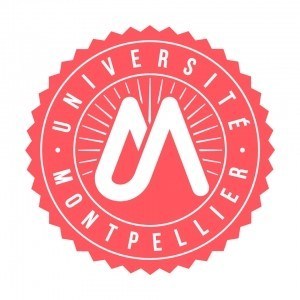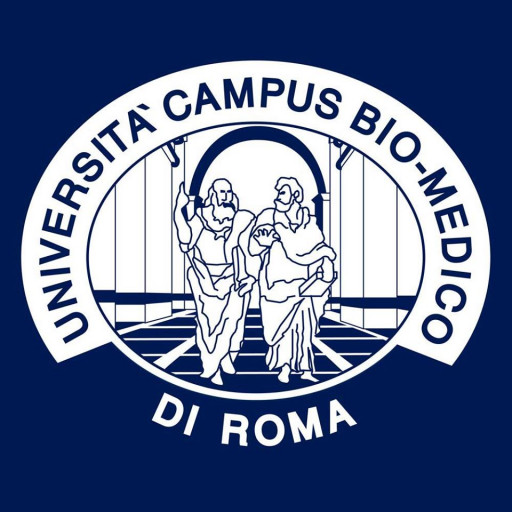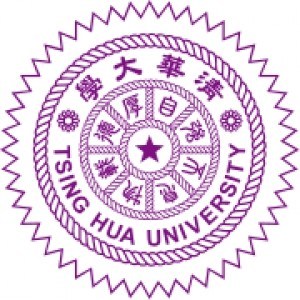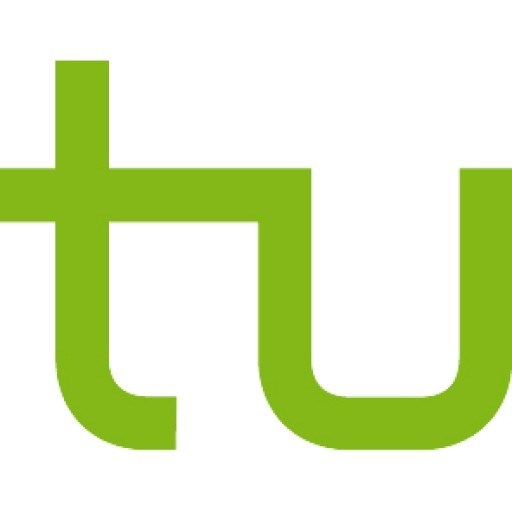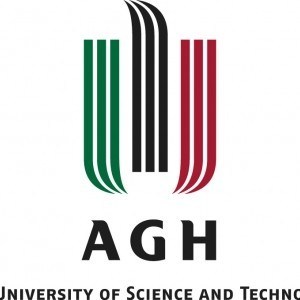Photos of university / #umontpellier
The Erasmus Mundus Master in Membrane Engineering EM3E offers an advanced education programme related to membrane science and engineering at the interface between material science and chemical engineering and focused on specific applicative fields.
It involves 6 High Education Insitutions of 5 European countries: University of Twente (Netherlands), Universidade Nova de Lisboa (Portugal), Universidad de Zaragoza (Spain), Institute of Chemical Technology Prague (Czech Republic), Université Paul Sabatier (Toulouse, France) and Université Montpellier 2 (France, coordinating organisation). Associated partners are the Universitat della Calabria (Italy), the Catholic University of Leuven (Belgium) and the Université Hassan II of Mohammedia (Morocco).
The pedagogical project of Master comes from the closely collaboration between partners through the European Research Network of Excellence NanoMemPro (EU-FP7).
Erasmus Mundus is an educational programme launched by the European Commission to promote the cooperation and mobility of higher education. It is a unique opportunity to offer attractive scholarships to non-European and European students by placing emphasis on the diversity of the students origin.
What is membrane engineering ?
Environmental considerations like massive scale air or water pollution and also the gradual rarefaction of the fossil energy resources gave rise to the concept of sustainable growth and to related strategies like process intensification, reuse of water and solvents at their point of use, hydrogen as energetic vector (requiring H2 production and using fuel cells as electric generators) or CO2 capture and storage.
Membranes have a key role to play in the new technologies and in the separation operations associated with these strategies.
Moreover a lot of separation operations are currently performed using membranes in industrial processes. Among the major applications for liquids, it can be mentioned the water desalination, the preparation of food, beverage, dairy or pharmaceutical products or the treatment and the recycling of industrial effluents, the production of tap or ultrapure water, the dehydration of ethanol, the dialysis of blood (kidney machine) For gas separation, some examples of current applications are the removal of hydrogen from ammonia synthesis gas, the removal of carbon dioxide from natural gas and the air separation. Intensive efforts of R&D are now engaged over the world to develop high performance membranes.
As an example, the membrane technologies are identified as Key Technologies 2015 by the French government. On the other hand, the European Federation of Chemical Engineering (EFCE) has now a new section dedicated to « Membrane Engineering ». A Network Of Excellence "Nanomempro" focused on this domain has been supported by Europe during the last 4 years.
The master EM3E
The Master in Membrane Engineering EM3E offers an advanced education programme related to membrane science and engineering at the interface between material science and chemical engineering and focused on specific applicative fields. It involves 6 Higher Education Institutions of 5 European countries:
- Université Montpellier 2 (France), coordinating organisation,
- Université Paul Sabatier (Toulouse, France),
- Institute of Chemical Technology Prague (Czech Republic),
- Universidade Nova de Lisboa (Portugal),
- Universidad de Zaragoza (Spain),
- University of Twente (Netherlands).
Associated partners are:
- Universitat della Calabria (Italy),
- Catholic University of Leuven (Belgium),
- Université Hassan II of Mohammedia (Morocco)
The pedagogical project of the master comes from the closely collaboration between partners through the European Research Network of Excellence NanoMemPro.
The Master course has a duration of two years: 4 semesters corresponding to 30 ECTS each and given at least in 3 countries. In the first year, theoretical and practical fundaments are provided: After an integration week, students enter the Master either at University Montpellier 2 or at University Paul Sabatier. In each of these universities, there are common mandatory and optional units, corresponding to teaching and research field of excellence of each partner (material science in Montpellier and physico-chemical processes in Toulouse). This first semester is adapted to students by taking into account the background and their learning objectives.
During the second semester, students follow mandatory teaching units to acquire knowledge and skills on process modelling and simulation at the Institute of Chemical Technology of Prague. During the second year, students choose to pursue their training in one of three university in order to acquire specific skills in an application field: Nanosciences and Nanotechnology (Universidad de Zaragoza), Energy and Environment (University of Twente), and Biotechnologies, Food and Health (Universidade Nova de Lisboa).
The last semester is devoted to a 6 months master thesis in a university or an industrial company. The number of enrolled students is maximum 30
The language of instruction is English. During the study period, the courses and activities country languages and culture are also provided. Students will be awarded with a multiple Masters degrees from the three hosting universities, together with a Diploma Supplement.
The EM3E Master programme takes 2 years (120 ECTS) of normal study. The courses provided in the four semesters, S1-S4, bridge different scientific domains like material science, physics & chemistry, engineering & processes, while keeping a focus on relevant applications of membranes in food and health industry, industrial and chemical processing, energy, environmental control, pharmaceutical industry, biomedical applications, etc.
During semester S1, after registration and an integration week at the Université Montpellier 2 (UM2), France, all the students stay together at the University of Montpellier 2 (France) or at the University of Toulouse 3 (UPS), France. The first semester is devoted to the fundamentals of Materials Science and Chemical Engineering. Depending on students' bachelor track and on the option chosen when applying, students, have the opportunity to choose between two specialities (four courses) more focused on Materials Science or on Chemical Engineering.
Semester S2 is devoted to the fundamentals of process modelling and technologies at the Institute of Chemical Technology of Prague (ICTP), Czech Republic. The courses offered in the first year, semesters S1 and S2, provide a broad and flexible orientation in the field of science and technology of membranes. In the second year, semester S3, the students can specialize in one of the following three tracks:
- Biotechnologies, Food and Health, at the Universidade Nova de Lisboa (UNL), Portugal (~ 10 students)
- Nanoscience and Nanotechnology, at the Universidad de Zaragoza (UNIZAR), Spain (~ 10 students)
- Energy and Environment, at the University of Twente (UTwente), The Netherlands (~ 10 students).
In the final semester, S4, the students learn how to work independently for a period of 6 months on an extensive research project, in either a university or industrial environment. The student are primarily responsible for progress, planning and discussion with supervising lecturers.
Master Courses
The courses offered in the master are at the interface with differents sciences (material science, physical-chemistry, chemical engineering ...) which are applied on various specific applicative fields (energy, environmental, food industry, pharmacy, biomedical application ...).
The first year (S1 and S2) is dedicated to courses on materials sciences, physical-chemistry and enginnering. The first semester of the second year (S3) has for objectives to turn thsese sciences into applications.
Master thesis
The fourth semester (S4) is devoted to the master thesis (minimum five months). It can be performed in a EM3E partner university or in an external organization (research center or industrial company) after agreement of the EM3E consortium.
The master thesis is co-directed by an academic staff of the university where the student have performed the third semester (S3).
The minimum admission criteria are the same for all students irrespective of their country of origin or of the training track they candidate to.
- Hold a Bologna 1st cycle degree or a bachelor degree in Chemistry, Physics, Materials Engineering, Chemical Engineering, Bio-chemical Engineering, or equivalent degrees in one of the previous domains, from a College, University or Technical School with a recognised standing or alternatively, a recognised professional experience in these areas. Students in the final year of a degree may be admitted as long as they present the certificate and official transcripts before they enrol. Applicant should include a letter from his/her university stating the anticipated date of completion of the degree.
- Excellent academic background. Candidates will be evaluated on the basis of their academic grades, professional experience, and motivation letter explaining their education and professional objectives and letters of recommendation.
- Proof of good English competencies (all courses are conducted in English). English language tests accepted are: TOEFL-iBT (required overall of at least 90); IELTS (required overall score of at least 6,5); University of Cambridge (Certificate of Proficiency in English or Certificate in Advanced English).
Other official proof could be admitted under validation of the EM3E consortium. Candidate from English speaking countries or candidate who completed his/her bachelor degree in English as medium of instruction must provide an official letter from his/her university from which he/she graduated attesting that English is the media of instruction. English Language Requirements IELTS band: 6.5 TOEFL iBT® test: 90
Want to improve your English level for admission?
Prepare for the program requirements with English Online by the British Council.
- ✔️ Flexible study schedule
- ✔️ Experienced teachers
- ✔️ Certificate upon completion
📘 Recommended for students with an IELTS level of 6.0 or below.
Scholarships
ERASMUS MUNDUS SCHOLARSHIPS
EM3E Master through the European Commission offers a limited number of Erasmus Mundus scholarships to non-European and European students to follow the EM3E master courses. Two kinds of Erasmus Mundus scholarships will be awarded:
- Category A scholarship: for students of Third-countries - those who are not nationals of the 28 EU Member States (Austria, Belgium, Bulgaria, Croatia, Cyprus, Czech Republic, Denmark, Estonia, Finland, France, Germany, Greece, Hungary, Ireland, Italy, Latvia, Lithuania, Luxembourg, Malta, The Netherlands, Poland, Portugal, Romania, Slovakia, Slovenia, Spain, Sweden, United Kingdom), EEA-EFTA states (Iceland, Liechtenstein, Norway), the former Yugoslav Republic of Macedonia (FYROM) or Turkey and not residents nor have carried out their main activity (studies, training or work) for more than a total of 12 months over the last five years in one of previous countries.
This scholarship is considered as a full scholarship covering all necessary costs of the student during his/her study period in Europe. The annual value of the scholarship is 24 000 /year distributed as:
- Contribution to travel, installation and any other type of costs 4 000 /year.
- Contribution to the EM3E participation costs (including insurance coverage) 4 000 /semester.
- Monthly allowance 1 000 /month.
- Category B scholarship: for European students and students not included in the previous category A.
This scholarship is considered as a financial contribution covering only a reduced part of the students costs while following the EM3E studies. The annual value of the scholarship is 10 000 /year distributed as:
- Contribution to the EM3E participation costs (including insurance coverage) 2 000 /semester.
- Monthly allowance 500 /month.
- Contribution to travel and installation: 3,000 only if the student performs the semester 4th in a third country.
Students eligible for a scholarship and important remarks
- Only candidates who have been accepted by EM3E in accordance with EM3E admission criteria. The scholarships are offered to the best students, after the examination of the applications.
- Individuals who have already benefited from an scholarship from another Erasmus Mundus Master are not eligible for a EM3E scholarship.
- Students benefiting from an Erasmus Mundus EM3E scholarship cannot benefit from another Community grant while pursuing their Erasmus Mundus masters studies.
- Erasmus Mundus Master students scholarships are awarded exclusively for a full-time enrolment in one of the course editions.
- Students can apply for an Erasmus Mundus scholarship to the EMMCs of their choice but the number of applications is limited to maximum three courses.
OTHER SCHOLARSHIPS
We encourage to all students to look for other grants from: their government, their University of origin or their local Council. Ask your University and local authorities for further details about these grants.
